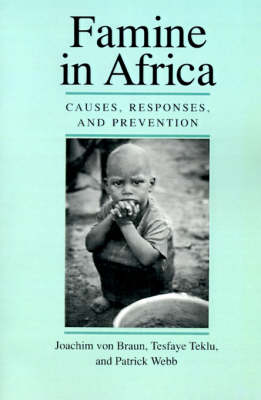Though famine has affected many parts of the world in the twentieth century, the conditions that produce famine -- extreme poverty, armed conflict, economic and political turmoil, and climate shocks -- are now most prevalent in Africa. Researchers differ on how to address this problem effectively, but their arguments are often not informed by empirical analysis from a famine context. Broadening current theories and models of development for conquering famine, Famine in Africa grounds its findings in long-term empirical research, especially on the impact of famine on households and markets.The authors present the results of field work and other research from numerous parts of Africa, with a particular focus on Botswana, Ethiopia, Niger, Rwanda, Sudan, and Zimbabwe. With these data, the authors explain the factors that cause famines and assess efforts to mitigate and prevent them. Famine in Africa is an important resource for international development specialists, students, and policymakers.
"A famine is a catastrophic disruption of the social, economic, and institutional systems that provide for food production, distribution, and consumption. For a long time famines have been considered anomalies -- crises that must be remedied by short-term relief activities so that the normal processes of development can be resumed... We now know differently. Famines can destroy not just life, but also the hope of development. They can make progress infinitely more difficult than it had been before. Relief operations alone, even if successful in terms of saving lives, are not a sound basis for a sustainable future. More -- much more -- is needed." -- from the Introduction
- ISBN10 0801866294
- ISBN13 9780801866296
- Publish Date 1 November 2000 (first published 11 January 1999)
- Publish Status Out of Stock
- Out of Print 5 July 2011
- Publish Country US
- Imprint Johns Hopkins University Press
- Format Paperback
- Pages 240
- Language English
